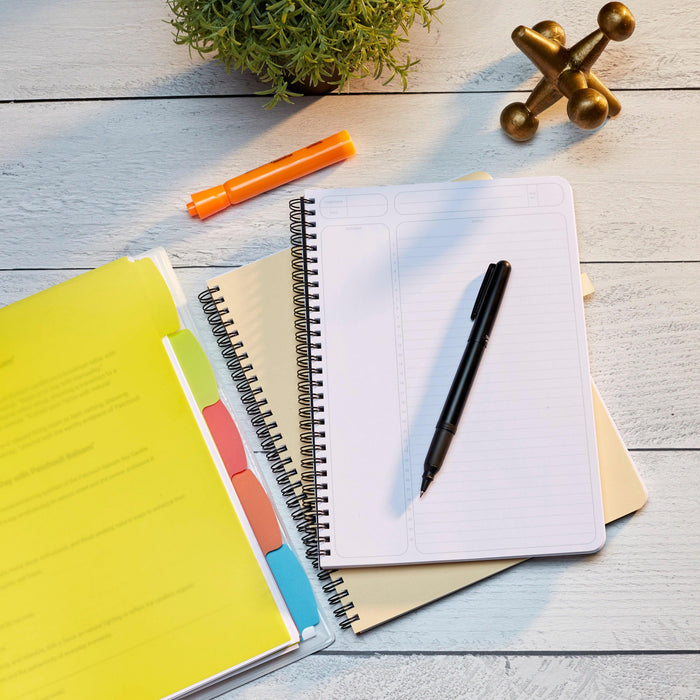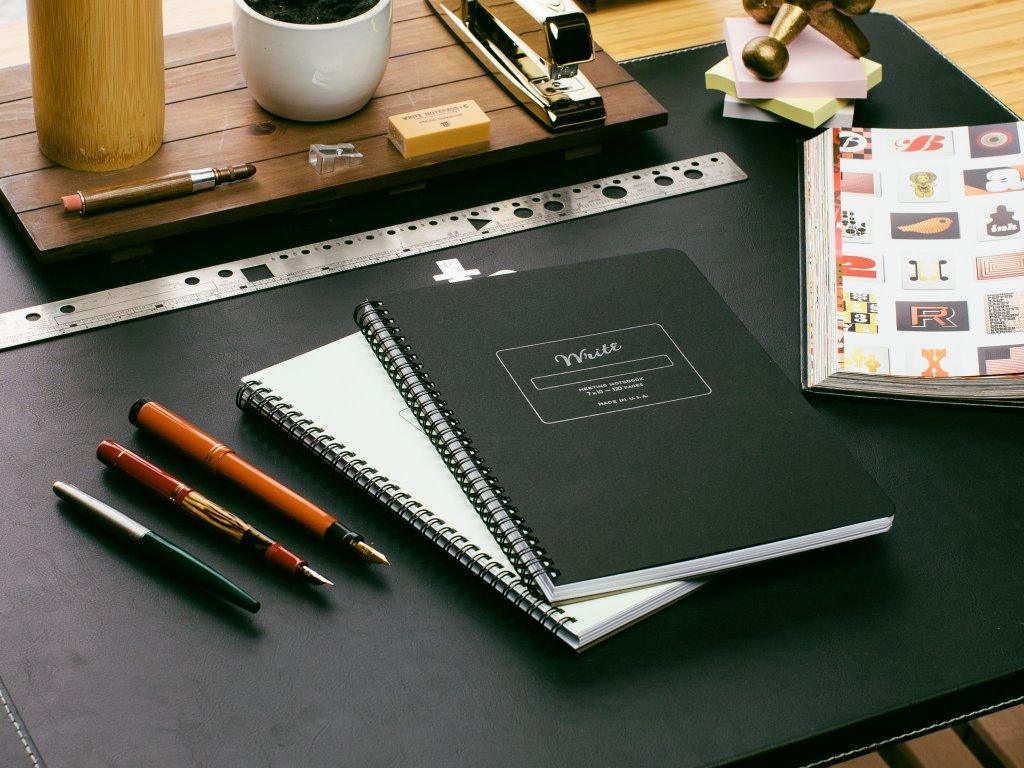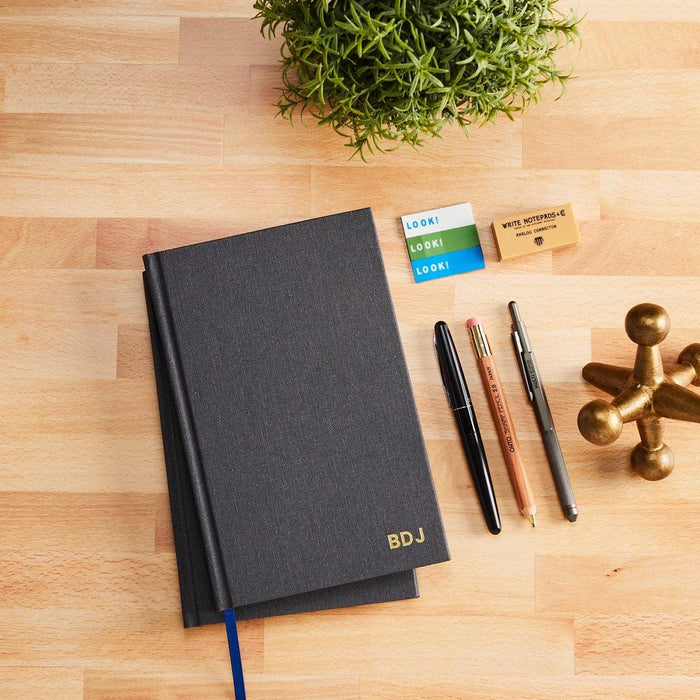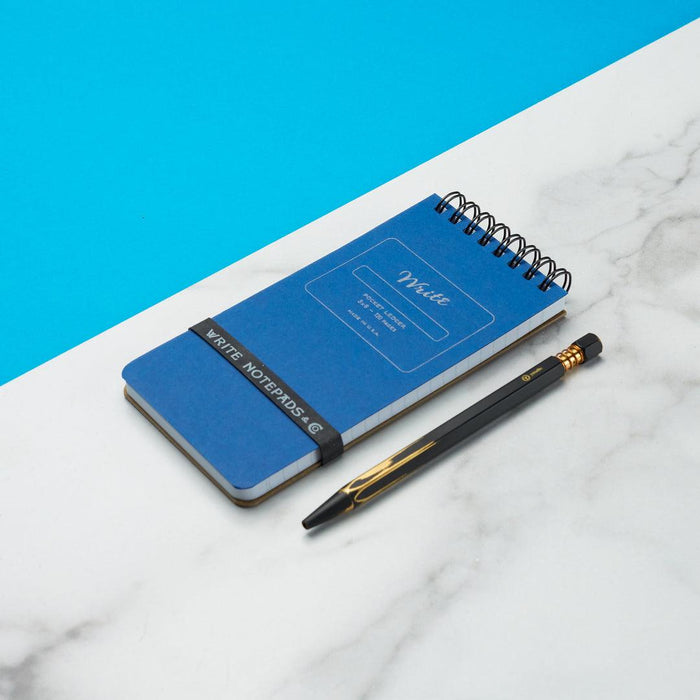

10 Essential Tips for Taking Effective Meeting Notes with a Meeting Notebook
Taking effective meeting notes is crucial for anyone who wants to stay organized, focused, and productive. In today's fast-paced world, using a dedicated meeting notebook can significantly improve your ability to keep track of essential information and ensure that nothing falls through the cracks. In this blog post, we will share ten tips for taking effective meeting notes using a meeting notebook, helping you maximize your time and maximize the most of your meetings.
Choosing the Right Notebook:
Selecting the perfect meeting notebook is the first step to taking practical notes. Consider factors such as size, layout, and paper quality when choosing a notebook that suits your needs. A dedicated meeting notebook can help you maintain organization, allowing you to quickly reference past meetings and create a clear record of the information discussed. Opt for a notebook with sturdy binding, good paper quality, and a layout that works for your preferred note-taking style, such as ruled, grid, or dotted pages.
And that's precisely what the Write Notepads & Co. Meeting Notebook delivers. It's got a sleek and sophisticated cover that's made to last. Plus, those high-quality materials give it an air of professionalism that's hard to beat. And let's not forget about the pages! They're smooth, sturdy, and perfect for writing with a fountain pen. If you take note-taking seriously, this notebook is the way to go. With plenty of space for all your ideas and thoughts, you can feel confident that nothing significant will slip through the cracks.
Creating an Agenda-based Outline:
An agenda-based outline can significantly improve the structure of your meeting notes, making it easier to follow and review later. Before the meeting, collaborate with the organizer to access the agenda, and use it to create a template in your meeting notebook. This template will serve as the basis for your notes, helping you stay focused on the most critical points and ensuring you get all crucial information. Additionally, an agenda-based outline allows for a more organized note-taking experience, making it easier to locate specific details when needed.
Efficient Note-taking Techniques:
To optimize your note-taking process, learn and implement techniques such as shorthand, symbols, and abbreviations. These techniques can save time during the meeting and make your notes easier to review and understand later. For example, you can use standard abbreviations like "w/" for "with" or "b/c" for "because" and create your symbols for frequently mentioned concepts. Experiment with different methods and find the ones that work best for your style.
Focusing on Key Points and Action Items:
To take practical meeting notes, it's essential to focus on key points and action items. These are the most important aspects of the meeting, and documenting them accurately will ensure you clearly understand what needs to be done. To identify key points, listen for phrases like "in summary," "the main idea," or "our top priority." Then, when it comes to action items, note who is responsible for each task, the deadline, and any additional details; this approach will help you prioritize tasks and focus on the most critical aspects of the meeting.
Regular Review and Follow-up:
Reviewing your meeting notes regularly and following up on action items is critical for staying organized and completing tasks. Set aside time after each meeting to review your notes, clarify any unclear points, and create a to-do list based on the discussed action items. Establish a system for tracking your to-do list, such as using a digital tool or a separate section in your meeting notebook. Timely follow-up on tasks will keep your projects moving forward and demonstrate your commitment to achieving your goals.
In conclusion, taking effective meeting notes with a dedicated meeting notebook is an invaluable skill that can significantly improve your organization, productivity, and overall meeting experience. By choosing the right notebook, creating an agenda-based outline, using efficient note-taking techniques, focusing on key points and action items, and regularly reviewing and following up, you can maximize the benefits of your meetings. So implement these tips and watch your meeting productivity soar!
Featured collection
-
Experience Journal
Write Notepads & Co.Original price $0.00 - Original price $0.00Original price $0.00$54.00$54.00 - $54.00Current price $54.0020+ in stockExperience Journal: Capture, Reflect, and Discover Every Unique MomentThe Experience Journal from Write Notepads & Co. is more than just a plac...
View full detailsOriginal price $0.00 - Original price $0.00Original price $0.00$54.00$54.00 - $54.00Current price $54.00 -
Engineer Bundle
Write Notepads & Co.Original price $62.00Original price $62.00 - Original price $62.00Original price $62.00Current price $49.00$49.00 - $49.00Current price $49.00Out of stockWrite Notepads & Co. Engineer Notebook and Dot Grid Tear Pad Bundle Step up your note-taking and brainstorming game with the ultimate duo from...
View full detailsOriginal price $62.00Original price $62.00 - Original price $62.00Original price $62.00Current price $49.00$49.00 - $49.00Current price $49.00Sold out -
Le Voyageur - Embrace the Journey
Write Notepads & Co.Original price $0.00 - Original price $0.00Original price $0.00$36.00$36.00 - $36.00Current price $36.0020+ in stockLe Voyageur Notebook – Your Perfect Companion for Every AdventureThe Le Voyageur by Write Notepads & Co. combines durability, style, and functi...
View full detailsOriginal price $0.00 - Original price $0.00Original price $0.00$36.00$36.00 - $36.00Current price $36.00 -
Weekly Planner Notebook: Organize Your Week, Achieve Your Goals
Write Notepads & Co.Original price $36.00 - Original price $36.00Original price$36.00$36.00 - $36.00Current price $36.00Only 9 left!Weekly Planner Notebook: Organize Your Week, Achieve Your Goals The Weekly Planner Notebook from Write Notepads & Co. is not just a planner—it'...
View full detailsOriginal price $36.00 - Original price $36.00Original price$36.00$36.00 - $36.00Current price $36.00 -
Engineer Notebook - Precision Graph Paper for Professional Use
Write Notepads & Co.Original price $0.00 - Original price $0.00Original price $0.00$33.00$33.00 - $33.00Current price $33.00Out of stockEngineer Notebook: Precision, Durability, and Elegance for Every ProjectThe Engineer Notebook is more than just a notebook—it’s an essential tool f...
View full detailsOriginal price $0.00 - Original price $0.00Original price $0.00$33.00$33.00 - $33.00Current price $33.00Sold out
Read More
-
 Meetings are an essential part of professional life, but all too often, they can feel like unproductive time-sinks. The key to transforming your meetings into productive powerhouses might be simpler than you think—a dedicated meeting notebook. This strategic tool helps you stay organized, ensures accountability, and keeps your projects moving forward. In our latest article, we explore the crucial role of meetings in the corporate world, common pitfalls that can derail them, and how the right meeting notebook can make all the difference. Discover the features to look for in a high-quality notebook and tips for maximizing your productivity in every meeting. Whether you’re a seasoned executive or just starting in your career, the right notebook could be the small change that leads to big improvements in your professional life.Read now
Meetings are an essential part of professional life, but all too often, they can feel like unproductive time-sinks. The key to transforming your meetings into productive powerhouses might be simpler than you think—a dedicated meeting notebook. This strategic tool helps you stay organized, ensures accountability, and keeps your projects moving forward. In our latest article, we explore the crucial role of meetings in the corporate world, common pitfalls that can derail them, and how the right meeting notebook can make all the difference. Discover the features to look for in a high-quality notebook and tips for maximizing your productivity in every meeting. Whether you’re a seasoned executive or just starting in your career, the right notebook could be the small change that leads to big improvements in your professional life.Read now -

Journaling for Mental Health: Techniques and Benefits
Writing can significantly impact mental health by providing an outlet for expressing emotions and organizing thoughts. Journaling helps individuals gain clarity, manage their emotions, and reflect on their personal growth and experiences.Read now -

The History and Art of Writing Instruments: Pairing with the Right Paper
Read nowSince the dawn of civilization, the artistry and craftsmanship of writing instruments have been instrumental in communicating and preserving knowledge. From the quills painstakingly crafted in medieval scriptoria to the sleek fountain pens treasured by today’s professionals, these tools have...











Leave a comment